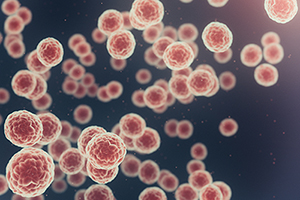Recently, a popular website, Gizmodo, regaled readers with the headline: “Our Cancers Are Filled With Fungi”, with the tagline “New research shows that many cancers play host to their own unique microbiomes of fungi, which may affect our chances of surviving them.”
Seeing this, I harkened back to work of Dr. Tullio Simoncini, who was trendy in alternative cancer therapy circles twenty years ago. In 2005, he wrote a book entitled CANCER IS A FUNGUS A Revolution in Tumor Therapy, which enjoyed widespread popularity. According to Wikipedia, Simoncini “was known for the claim that cancer is caused by the fungus Candida albicans, and has argued that cancer is a form of Candida overgrowth.” He advocated for intravenous bicarbonate therapy for cancers and treated patients accordingly.
It ultimately ended badly for Simoncini. In an article entitled, “Is Cancer a Fungus? Dispelling the Myth”, Healthline argues:
“ . . . there are no pathology, imaging, or research studies that would indicate in any way that cancer is a fungus. And just to be clear: Cancer is not a fungus — this is one myth that needs to be permanently put to rest.”
Wikipedia reports:
“Simoncini was tried and found guilty of fraud and manslaughter in 2006 after a patient died after receiving his treatment. In 2018, Simoncini received a 5-year jail sentence for culpable manslaughter of a cancer patient in 2011.”
The American Cancer Society weighed in in their section on discredited alternative therapies:
“Sodium bicarbonate, also known as baking soda, is promoted by some alternative practitioners as a cancer treatment. This treatment is based on the theory that cancer is caused by a form of yeast infection and that sodium bicarbonate can kill the yeast. This claim is not supported by science or clinical evidence and is contrary to widely-accepted basic facts of oncology and microbiology.”
Spoiler alert: I agree. Cancer is not a fungal infection. It would be nice if an inexpensive substance like sodium bicarbonate would provide the key to eradicating cancer. But like many facile theories about cancer, it fails the reality test.
However, as with some seemingly wacky ideas, there’s a kernel of truth, and a potential for therapeutic applications, in the cancer-fungus connection. Or, in other words, “absence of proof doesn’t necessarily mean proof of absence” of the role fungus may play in cancer.
The Gizmodo article led me to read the original scientific paper on which it was based.
First of all, the researchers demonstrated the presence of fungal species within 35 cancers that they studied. But, as we have so often reiterated, correlation doesn’t necessarily imply causation. Enormous amounts of water are often found at scenes of destructive fires, but they’re not the cause of the devastation—fire is.
A better biological analogy is the presence of bacteria in gangrenous tissue of diabetics with poor circulation. True, intensive antibiotic administration can sometimes save a toe or entire foot or leg that suffers compromised circulation. But the gangrene results, not merely from bacterial infection, but from the vulnerability created by the damaging effects of high blood sugar on blood vessels and tissue—the ultimate cause.
It’s intriguing to speculate whether there may be something similar going on with certain cancers. The researchers also found that, not only was fungus present in many cancers, but the degree of its presence dictated the prognosis of patients—whether or not they’d respond to treatment.
Another fascinating finding is that blood tests could be performed to detect the presence of fungal DNA—and the results could be used to discriminate between healthy patients and those with early stage cancer! If refined, this could be an impressive diagnostic tool for early cancer detection.
Which brings us to the Yeast Connection, the theory that Candida is responsible for a wide array of health problems, a concept popular among integrative doctors, but that has been reviled by orthodox medicine. Conventional doctors say fungal infections are either superficial, causing skin, oral or vaginal discomfort, or deadly when they become blood-borne, but nothing in between.
This ignores the wide spectrum of allergic and immunosuppressive effects of Candida. It’s said to cause a slew of elusive complaints: Fatigue, brain-fog, irritable bowel syndrome, chronic sinusitis, to name but a few where I suspect fungal overgrowth may be implicated.
Fine, but what about cancer? There’s no doubt that cancer therapy with chemo and radiation, and cancer itself, with its debilitating effects, can cause immunosuppression. This is thoroughly acknowledged in oncology. Cancer patients are prey to sometimes life-threatening fungal infections which require prompt and aggressive treatment with anti-fungal drugs.
They are vulnerable to weird fungal pathogens that rarely afflict people with normal immune systems. They are even told to avoid exposures that, to normal persons, would pose scant risk:
- Try to avoid areas with a lot of dust like construction or excavation sites.
- Stay inside during dust storms.
- Stay away from areas with bird and bat droppings. This includes places like chicken coops and caves.
- Wear gloves when handling materials such as soil, moss, or manure.
- Wear shoes, long pants, and a long-sleeved shirt when doing outdoor activities such as gardening, yard work, or visiting wooded areas.
But could there be a two-way street: Could fungal infections themselves exacerbate the immune suppression seen in cancer? A 2002 investigation suggests precisely that. The researchers conclude:
“The results indicate that systemic C. albicans infection can augment the effects of immunosuppressive therapies by promoting functional changes in immunosuppressive cells.”
In fact, at least in one type of cancer—pancreatic cancer—the fungal microbiome, specifically the presence of a certain fungus, Malassezia globose, appears to drive oncogenesis. The presence of the same fungus is correlated to shorter survival in breast cancer.
Would it not be possible, not necessarily to knock out cancer, but rather to improve the responsiveness of patients to current therapies, by identifying and treating the fungal infections that invade their cancers? And we now have a far more effective arsenal of antifungal medications than sodium bicarbonate.
Indeed, cancer researchers now theorize, based on these tantalizing clues, that fungi may serve in the future, not just as biomarkers and predictors of treatment response, but also as therapeutic targets! In other words, the time may not be far off when antifungal drugs will find use beyond merely eradicating opportunistic fungal infections acquired by cancer patients receiving immunosuppressive chemo or radiation—but as a way of fighting their tumors.
How’s that for an example of how a seemingly nutty idea, with proper refinement, can become a real-world modality?
Read more at: The Yeast Connection vindicated—35 years later








